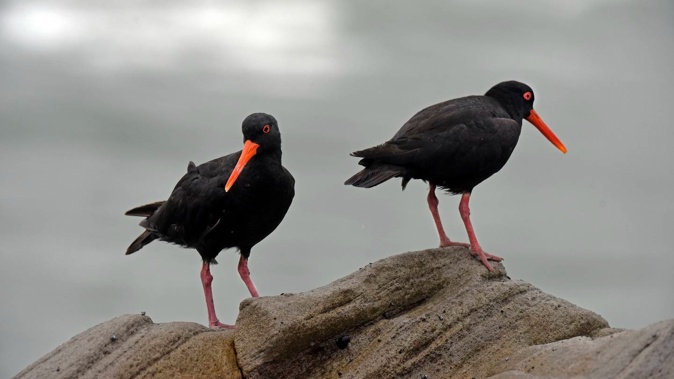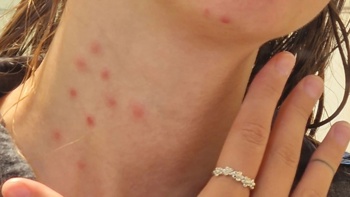
The Department of Conservation is shocked that children kicked and abused protected oystercatcher chicks on a Northland beach.
The department has warned about the hefty penalties facing those who disturb protected wildlife.
The children’s behaviour was reported to DoC by a Mangawhai local. They said they saw three boys, aged about 10 or 12, kick two variable oystercatcher (VOC) chicks whose parents were nearby at the Mangawhai Sandspit on January 28.
Variable oystercatchers are found around much of New Zealand, often seen in pairs looking for shellfish along beaches or in estuaries. They have been protected since 1922 when their population declined.
One of the children buried a dead chick in the sand and left the other struggling in a heap with VOC adults pecking it. The boys ran off after an adult spoke to them.
The local hunted for the buried chick and took the other one home as it has been deserted. They contacted the DoC hotline and was instructed them to take it back to where they found it and leave it there which they did.
“I just cannot believe the idiocy of some people,” the local said.
The actions have also angered DoC.
“It is distressing to have behaviour like this occurring but very reassuring to know we have such awesome people in the community, who help care for our precious taonga,” DoC ranger Nikki Hartley said.
“Our rangers can’t be everywhere at once, so having community members reporting incidences is a massive help. Reports like this are taken very seriously and our compliance team are investigating, this is not something we will tolerate.”
She said disturbing protected wildlife is an offence against section 63(1) of the Wildlife act 1953.
The maximum penalties for the offence are a term of imprisonment not exceeding six months or a fine not exceeding $100,000.
The people who returned the buried chick have since reported that it had perked up and recovered from the shock it was suffering when they picked it up.
“They popped it back onto the beach where they got it and it immediately started peeping. A pair of adults were quickly on the scene and off they went together so that part of it ended well.”
Variable oystercatchers were previously shot for food and reached low numbers before being protected in 1922, since then numbers have increased rapidly. They are long-lived, with some birds reaching more than 30 years of age.
Take your Radio, Podcasts and Music with you









